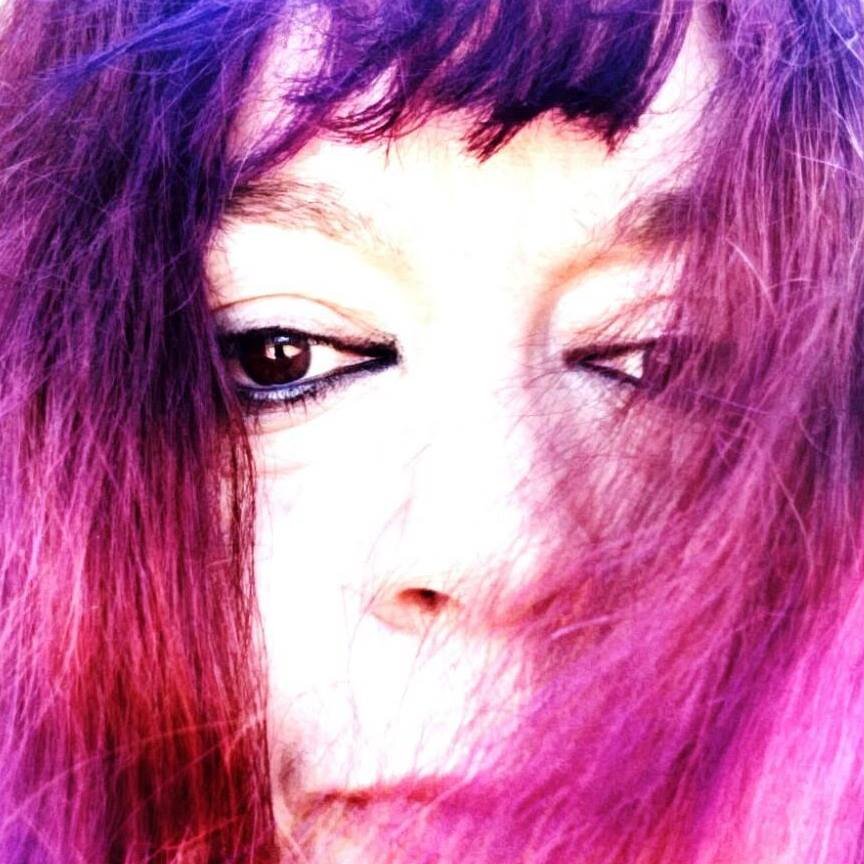Diane Seuss
Little Fugue with Jean Seberg and Tupperware
I’ve tired of them.
Those dishes I learned to cook for love.
Dishes that were not in my nature
but I suppressed my nature.
For love, for love.
What ridiculous things I’ve done.
I’ve said big dick when I meant small dick.
And you know? I’ve tired of
the French New Wave.
Did I ever love Jean-Paul Belmondo?
Now he seems like some trifling prick
I’d have to call into my office
for disrespecting teacher. I’m teacher. I
had no God-given authority.
I had to self-generate it, like God.
At some point, God had to take the leap to
become God.
Those dishes. I carried them in Tupperware
knockoff storage containers. Drove them miles,
through blizzards, for love.
Love, that little wood tick. That tick-in-the-ass.
Say the word enough times inside your head,
it will fall out of its meaning
like a stillborn, plop, into the toilet.
Even Jean Seberg, so intent on her prettiness.
Rocking the short hair.
Trifling waist. Trifling striped dress.
She died of miscarriage-trauma.
Miscarriage-trauma caused by the FBI.
It is better to get over things.
To forget the stupid recipe for fetus-in-a-jar. So
much of cinema, so much of it,
seemed like something I was supposed to like. I
oohed and aahed in all the right places.
A pretense of breathlessness.
But I sat there squirming. Embarrassed by the jump
cuts. The film where the heroine
cuts off her lover’s dick and carries it
around with her in a knockoff
Tupperware storage container. God,
I tried to write papers about these things,
but I found no meaning in the meaning.
I’d focus on the little spaces between
the actor’s teeth, or that the actress looked like
the empty-faced Jesus-seeking girls back home.
In the end, as he’s dying, he tells her she
makes him want to puke.
Yes, sister, many-a-night has ended thusly.
Tongue Sandwich
Have you ever been forced to eat tongue?
Has your tongue ever been eaten?
Have you bitten your own tongue? It hurts.
It hurts, to bite your own tongue.
It hurts to eat tongue. Whose tongue, you ask
yourself, am I eating?
What did it taste? What might it have
tasted, had it not been eaten? What was its mother
tongue? What might it have spoken, had things
gone otherwise? Things did not go otherwise.
At Katz’s deli, on the corner of East Houston
and Ludlow, I ate tongue. Tongue between two
slices of bread. Tongue shaved thin. Order
the tongue! ordered the man behind the counter.
Order it and move on! Hey, coward, my companion
said, eat the tongue. His smile was V-shaped,
like Pan in an illustrated volume of trickster gods.
His V-smile spoke volumes. I was young. I ordered
the tongue, though I’d seen one laid out on a tray
of false greenery in a butcher shop back home.
It was humped in the greenery like a rabbit
in the rain. It seemed to be covered in a fine
gray fur. I saw its taste buds and nearly fainted.
Think of me what you will. I am no soldier
of the sensual world. When, as a teenager,
I visited the hospital where my father had died
years earlier, and the elevator stopped
at the seventh floor, my father’s floor,
I fainted dead away. Someone kissed me
awake. Someone wearing a velvet overcoat.
The kiss was not gentle. They pried open
my mouth and bit my tongue. It hurt,
but it woke me. It hurt alright, but it woke me
up. I witnessed their lips, up close
and personal. So close, they blurred.
But out of the fog I could see the V-shape
of their smile. The V cut through the fog
like an arrow of migrating swans. A few years
later I found myself at Katz’s deli, trying
to manage that tongue stuck between two
thick slices of white bread slapped with yellow
mustard. My teeth were sharp then. White
and sharp and cold. They bit through the layers
of that delicacy, the tongue and the delicate
brutality of the place, the day, the company
I kept. The taste of tongue was surprisingly numb.
Like eating food after a good jolt of Novocain.
Strange, to taste what once tasted the sweet green
of grass, and to find the receptor of flavor
so flavorless. I realized I had slipped into allegory,
consuming the tongue of a creature
who once spoke only in tongues.
Mary Biddinger
Rebecca Black
M. Cynthia Cheung
Joanna Penn Cooper
Isabelle Correa
Adam Day
Kendra DeColo
Lisa Dordal
Lise Goett
Camille Guthrie
James Allen Hall
Barbara Hamby
Rebecca Hazelton
Erin Hoover
Charles Kell
David Kirby
Keith Kopka
Cate Marvin
Marc McKee
Jennifer Militello
Jay Nebel
Kevin Prufer
M. Seaton & A. Smith
Diane Seuss
Martha Silano
Aaron Smith
Tana Jean Welch
Jeff Whitney
Jordan Zandi

